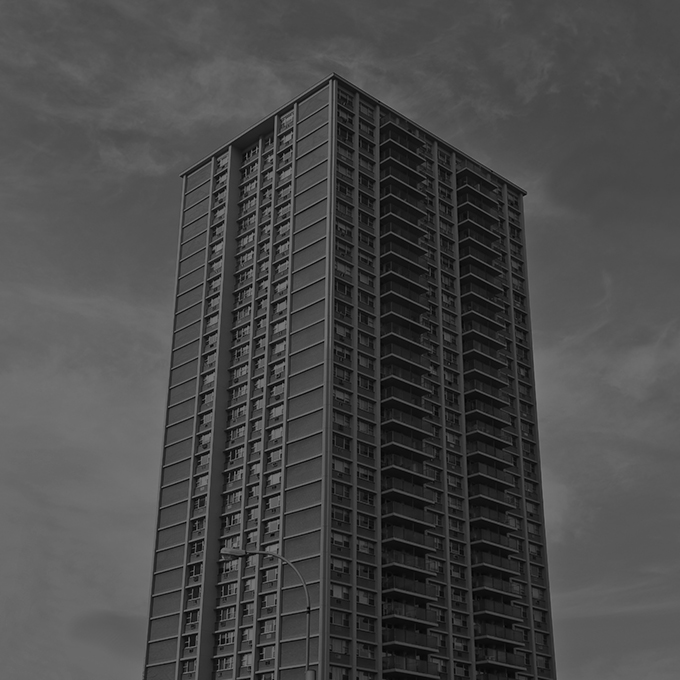POLITICIANS - "WE NEED TO BUILD MORE HOUSING" - HOT AIR
NATIONAL POST - Sabrina Maddeaux
These days, it’s difficult to find a politician who doesn’t claim to support building more housing. To come out against housing affordability would be politically toxic, so instead, many have decided to say one thing publicly, do the complete opposite in practice and hope no one uses actual data to expose their duplicity. Case in point: the Canadian Housing and Mortgage Corporation’s (CMHC) latest monthly housing stats show much of the country falling behind on housing promises. Last year, the CMHC estimated that Canada would need 5.8 million new homes by 2030 for housing to become affordable.
Yet the standalone seasonally adjusted rate (SAAR) for total housing starts across Canada declined by 23 per cent from April to May of this year. The SAAR of total urban starts, where we should be building the most housing, also decreased by 24 per cent in this period to 182,842 units — the lowest number since the early pandemic days of May 2020.
While single-detached urban starts saw a small six per cent bump from April to May, crucial multi-unit urban starts declined by 30 per cent.
"Canada’s population passed the 40 million mark, having welcomed 284,982 people in the second quarter of 2022, our highest-ever number of immigrants."
This shrinkage is part of an ongoing trend. CMHC reports the SAAR’s six-month moving average was down to 230,205 units in May, from 240,318 in April. In February, it was 254,871. At the same time, Canada’s population passed the 40 million mark, having welcomed 284,982 people in the second quarter of 2022, our highest-ever number of immigrants.
Huge immigration boosts combined with stagnating, if not declining, housing starts threaten to worsen an already untenable situation. We can’t expect to reap the benefits of immigration while our housing crisis rages on and all three levels of government fail to act with the boldness and urgency required.
Of course, some governments are worse than others. As Mike Moffatt, senior director of the Smart Prosperity Institute, pointed out in a Twitter thread analyzing the CMHC’s latest numbers, at least 12 Ontario municipalities are so far behind that meeting their 10-year goals is now all but impossible, “even if magical housing gnomes completed all their under-construction homes overnight.”
Brampton, Ont., would need to build 113,000 homes over 10 years, but has so far only managed 3,262, with another 2,879 under construction, totalling just 5.4 per cent of its target. Other failing Ontario municipalities include Ajax, Newmarket, Windsor, Guelph, Milton and Mississauga (whose mayor, Bonnie Crombie, is running to lead the Ontario Liberals).
Mississauga, a city already under fire for its NIMBY track record and Crombie’s applauding of a video that implied condo residents are likely sex traffickers, posted some downright embarrassing May stats: a grand total of two housing starts. Two!
But while Canada’s mayors unquestionably need to step up their housing game, we need more action from all three levels of government.
If municipalities are too beholden to NIMBYs to act, then provincial governments must force their hands, overriding them on zoning regulations and reducing bureaucratic red tape that holds back new builds. Ontario Premier Doug Ford should seriously consider implementing more recommendations from the Ontario Housing Affordability Task Force report.
Federally, Prime Minister Justin Trudeau’s Liberals must create a sustainable immigration plan that doesn’t further exacerbate the housing crisis or continue to put foreign students and temporary workers in exploitative situations. They should also hyper-prioritize immigrants who work in the skilled trades, while provinces must ensure newcomers can work in their chosen fields.
Trudeau should also stop implementing policies that juice demand and do little more than allow first-time home buyers to take on ever larger debt loads. He also needs to disincentivize Canada’s growing class of amateur investors and speculators, preferably by making it more difficult to qualify for residential mortgages on multiple properties. In several provinces, multiple owners hold between 30 and 40 per cent of the housing stock.
Not one level of Canadian government is treating the housing crisis with the seriousness it demands. When casting their next vote, whether in a leadership race or general election, voters should be extra wary of politicians who are all housing talk with few actual homes to show for it.

APARTMENT MARKET - MARKET PERSPECTIVES IN CHANGING TIMES
The Apartment Group
The old saying goes "nothing is constant but change". Those who see the change and adapt with it will be the winners. Those who bury their heads or freeze and contemplate rather than move and act will be the losers. Data and experience are key to make the right moves at the right time. It is not question we are in changing times. The overall real estate investment market has been influenced by the actions which have occurred in the past 18 months. We are now getting data from deals that have been completed post interest hike period. Sales volume is down across the board and through all sectors. The office and retail sectors were more hard hit given the issues surround covid, supply chain issues, inflation etc.
We are now through the first half of 2023 and while the volume of deals are down there have been deals and trends are starting to emerge. In the GTA in the first half of 2023 there were 31 apartment transactions of 6 suites or more. This is down 45% form 2022 and 2023. Dollar volumes are down too from $1.3BB in 2022 to $800MM in 2023. In 2021 that volume for the first half of the year was $900MM. The good news is that volume and activity seems to be picking up. In Q2 of 2023 there we 21 sales and a dollar volume of $510MM which is up from Q1 where there were 10 sales and $290MM in dollar volume. Q4 and Q3 sale sales of 9 and 10 closing respectively with dollar volumes at $230MM and $350MM respectively.
Given the restricted demand and rising interest rates, pricing has seemed to soften a bit across the board. We stress that we are in early days to predict any long term trend here we can only provide the data. That said cap rates in the first half of 2023 averaged 3.8% which is down 1% from 2022 and higher than the 3.3% in 2021. Q2 2023 saw average cap rates are around 4.0% a rate not seen since 2017. In 2023 the price per suite was around $328,000 and in 2022 was $372,000.
As mentioned, these are early days and more data are needed to conclude any strong trends. What we can say at this point is that it appears that demand is returning and deals are getting done. Pricing is still soft and still fluid. Rents keep going up and up and vacancy down and down which is only making the NOI of apartment investments and upside that much stronger.
ONTARIO RENTAL GUIDELINE INCREASE 2024
REMI
The rent increase guideline will max out at 2.5 per cent for most of Ontario’s sitting residential tenants in 2024. In announcing the threshold for next year, Steve Clark, the provincial Minister of Municipal Affairs and Housing, notes that it is well below the current 5.9 per cent average inflation rate.
“Our government knows the cost of living continues to be a challenge for many Ontarians, including renters, which is why we are holding the rent increase guideline at 2.5 per cent,” he says. “This decision builds on the historic tenant protections contained in our recent Helping Homebuyers, Protecting Tenants plan, and demonstrates our commitment to help tenants across the province.”
That legislation: addresses the process for allowing tenants to re-occupy a unit following a renovation; imposes a deadline for prescribed tenants to occupy a unit following an eviction to accommodate the landlord’s own use; and gives tenants the right to install air conditioning at their own cost.
The rent increase guideline for 2024 applies for sitting tenants of privately supplied residential rental units that came onto the market for occupancy before November 15, 2018. The starting point for all rents, and subsequent rent increases, is reset when a unit turns over to a new tenant.
RECENT APARTMENT SALES
68 BREKENRIDGE DRIVER / 124 TUPPER CRESCENT - KITCHENER - $8,686,000 / $202,000 PER SUITE / 3.75% CAP RATE
This is the sale of two properties in Kitchener owned by the same company and sold together. In total there were 43 suites in the package and both buildings were concrete walk up apartment investments dating from the 1950's. Both buildings were in decent condition at the time of sale and were considered affordable rental product in the City. The buildings are well located and some upgrades were recently completed. Most of the suites were in original condition and rents were far below current market levels. The property was full exposed to the market and the low cap rate reflects the huge amount of upside here. The purchaser was a private investor.
2431-2423 KEELE STREET - NORTH YORK - $7,500,000 / $312,500 PER SUITE / 4.15% CAP RATE
This is the sale of two 3 storey free standing rental apartment buildings and containing 24 suites. Built in 1960's, these concrete buildings has been held by the same family for 15 years. They have a brick and siding exterior, flat tar and gravel roofs, double windows and hot water gas fired heating systems. The site is over half an acre in size and tenants pay their own utilities. There is on site laundry and surface parking and some external garages. While many suites have been renovated there still was substantial rental upside here. The property was fully marketed and sold to a new private apartment investor.
80 QUESTVILLE AVENUE - YORK - $10,900,000 / $205,660 PER SUITE / 5.0% CAP RATE
This is the sale of a 53 suite rental apartment building dating from the 1960's. It has a brick and siding exterior, double windows, flat roof and is of concrete construction. There are a mix of one and two bedrooms. The 4 storey asset is well maintained and located in a c+ location. The building was heated by a gas fired radiant system and there is 48 parking spaces. This 0.84 acre property was fully occupied with rental upside. The property was fully marketed and sold to a new private investor.
THE APARTMENT GROUP
Together the team has completed over 1,500 transactions and has sold over $7.0 billion in apartments and development land. Put us to work for you and see the results. NO ONE has sold more buildings than our group. Experience, knowledge and professionalism will insure you get the right deal or the highest price if you are selling.
The Apartment Group is a dedicated team of professionals specializing in the sale of multi-residential investment properties. With over 40 years of combined experience, the team brings together their strengths including strong negotiation and sales skills along with highly technical market analysis and appraisal methods.
We are a boutique Brokerage but have the capabilities of the larger houses without the overhead. We have: an internal database of over 10,500 active apartment and land Buyers; a list of all apartment building owners in the Greater Toronto Area; our web site gets over 50,000 hits a month; we highlight properties for sale through our newsletter which reaches 10,000 investors monthly.
MITCHELL CHANG
President & Owner,
Salesperson
Direct: 416-219-0436
mchang@cfrealty.ca
LORENZO DIGIANFELICE, AACI
Broker of Record, Owner
Direct 416-417-9098
ldigianfelice@cfrealty.ca
JAKE RINGWALD
Salesperson
Direct 416-996-7713
jringwald@cfrealty.ca


